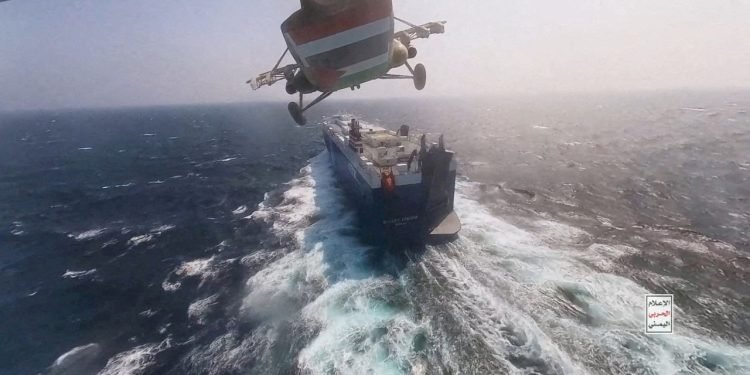The United States may be willing to remove the Houthi movement from its list of Foreign Terrorist Organizations (FTOs) if the group stops attacks on shipping vessels in the Red Sea.
This potential shift in policy comes amid ongoing efforts to alleviate the humanitarian crisis in Yemen, a conflict heavily influenced by Saudi Arabia and Iran.
The Houthi movement, a Zaidi Shia group based in northern Yemen, has been designated as a Foreign Terrorist Organization by the US since 2014. The designation has been a major obstacle to delivering humanitarian aid to Yemen, as it restricts financial transactions and interactions with the Houthis who control large parts of the country.
The report suggests that the Biden administration is considering this move as a way to encourage the Houthis to de-escalate the conflict. A key demand is a halt to attacks on ships traversing the Red Sea, a crucial waterway for global trade. Houthi rebels have been accused of launching missile attacks and using drone strikes against Saudi Arabian vessels in the Red Sea, raising concerns about the security of international shipping lanes.
Lifting the FTO designation could have significant implications. It would ease restrictions on humanitarian aid deliveries to Yemen, potentially alleviating the suffering of millions caught in the midst of the conflict. Additionally, it could pave the way for a more inclusive peace process involving the Houthis.
However, the proposal is likely to face criticism. Some argue that removing the designation would be a premature concession to the Houthis, who haven’t shown a commitment to a peaceful resolution. Others may be concerned about the potential for the Houthis to continue their activities deemed to be acts of terrorism.
The situation in Yemen remains complex, with no easy solutions. The US consideration to lift the FTO designation highlights the delicate balancing act between addressing the humanitarian crisis and ensuring regional security. Whether the Houthis are willing to meet the US demands and de-escalate the conflict remains to be seen.























